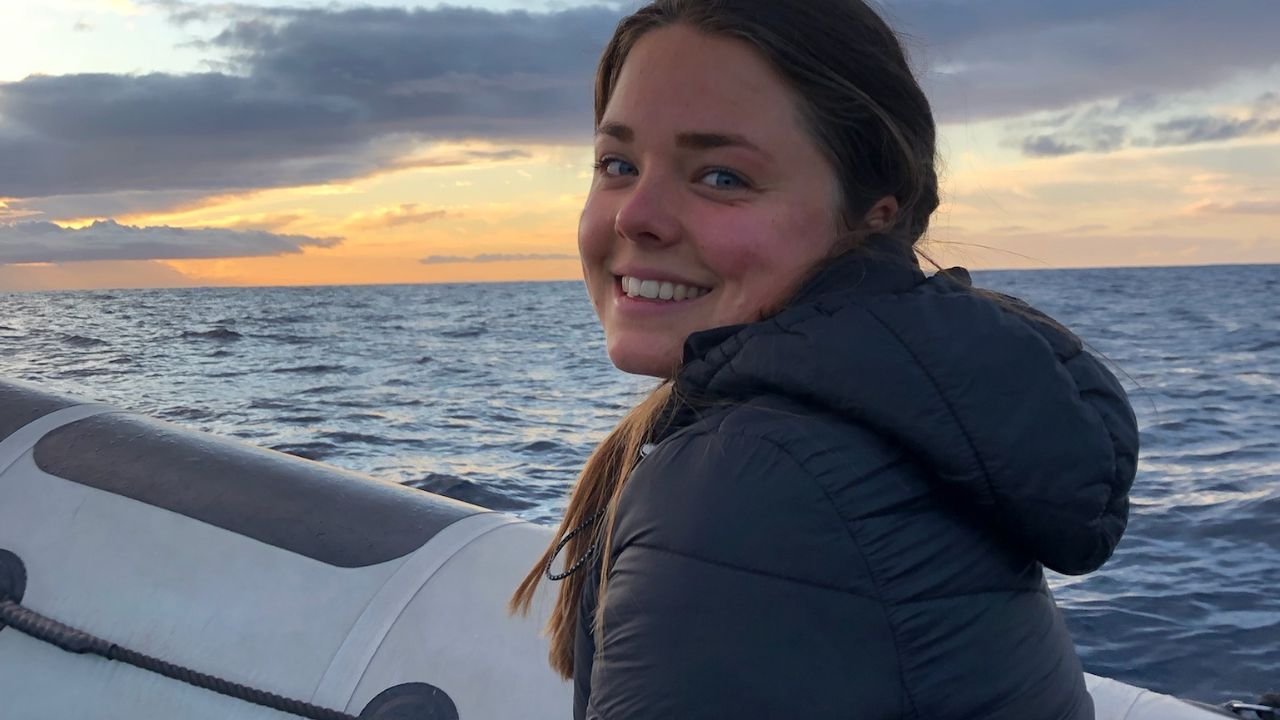On the secluded private island of Song Saa, off the coast of Cambodia, surrounded by turquoise waters and vibrant marine life, you’ll find Sabrina Petry – marine scientist, scientific diver, and ocean advocate – immersed in the work she loves most. For Sabrina, the sea is more than a backdrop. It’s where her passion and purpose intersect, every single day.
“I’m really happy to be here and to have the chance being back in the water doing a lot of diving,” she says, reflecting on her current role at Song Saa as the resident scientist, where she works alongside the Song Saa Foundation, a non-profit committed to marine conservation and community wellbeing in Cambodia’s Koh Rong Archipelago.
Her journey began not in Southeast Asia, but in Australia – where a diving hobby evolved into a calling. “I did a lot of diving in Australia. I started from my open water diving and went all the way up to dive master,” Sabrina recalls. But, she soon realised that guiding tourists on dives didn’t fulfil her. “I missed the part of actually looking at the marine life… and I missed the part of the science and the research.”
That pull towards purpose led her to Fiji, where she experienced scientific diving for the first time. “I absolutely fell in love with it,” she says. When she returned to Germany, Sabrina pursued formal training in scientific diving while completing a Bachelor’s in Biology and later a Master’s in Integrative Zoology, focusing on marine biology and marine mammal behaviour.
Her academic interests took her to the Ligurian Sea in Italy and the Canary Islands, where she conducted fieldwork with dolphins and whales, mastering tools like drones, field tracking, photogrammetry and complex data analysis. “I had the opportunity to do various different internships… I got introduced to a lot of different methods on how to collect data.”
But, Sabrina always felt the ocean calling her back – this time, to its depths. “I always wanted to go back to diving because I had this passion for scientific diving”. That led to a stint in Helgoland, Germany, where she handled highly technical dives. Her job? Monitoring and maintaining underwater sensors and preparing racks for ocean measurements. “It was so technical that then I missed the biology part of it,” she admits.
This was followed by a stint in Croatia, “I worked in a project about underwater archaeology and the diving around Helgoland gave me a lot of experience regarding diving in difficult conditions,” she says – mentioning low visibility, strong currents, and frigid water.
Other opportunities took Sabrina to Egypt, where she did sea turtle photo ID work. And, Denmark, where she helped monitor and protect harbour seals and porpoises from fishing nets. However, it was a period in the Seychelles that helped her find the balance she sought.
“It was here that I worked in coral restoration for the first time. And this experience was eye opening to me in the sense that I wanted to combine my passion for diving and actively contribute to marine conservation while doing research. This was also a big reason why I came to Song Saa.

Now based on the private island in Cambodia, Sabrina is leading the Song Saa Foundation’s coral restoration efforts. “I just recently started a new proposal for our coral restoration project here. So, right now I’m really focused on pushing this project forward,” she shares.
In June, Sabrina and her team transplanted 140 coral fragments back onto the reef. “We collect corals of opportunity which naturally come off by wave action, current…and then we plant them back onto the reef,” she explains. “This is a really big part of what I’m doing here now.” Her daily work includes diving to check on the transplanted fragments, monitoring biodiversity, conducting seagrass surveys, and analysing the data.
Her work is both hands-on and hope-filled. Sabrina isn’t just studying the ocean – she’s actively restoring it. And for aspiring marine scientists or young girls fascinated by the deep, Sabrina’s story is a testament to following your passion wherever it leads – even underwater.
“I really missed being in the water every day,” she says. “Now I get to combine my scientific background, my love of diving, and my passion for conservation – every single day.”
Visit Song Saa Private Island and witness first-hand the important conservation work of the Song Saa Foundation, particularly with its coral restoration initiatives and marine biodiversity programs.






